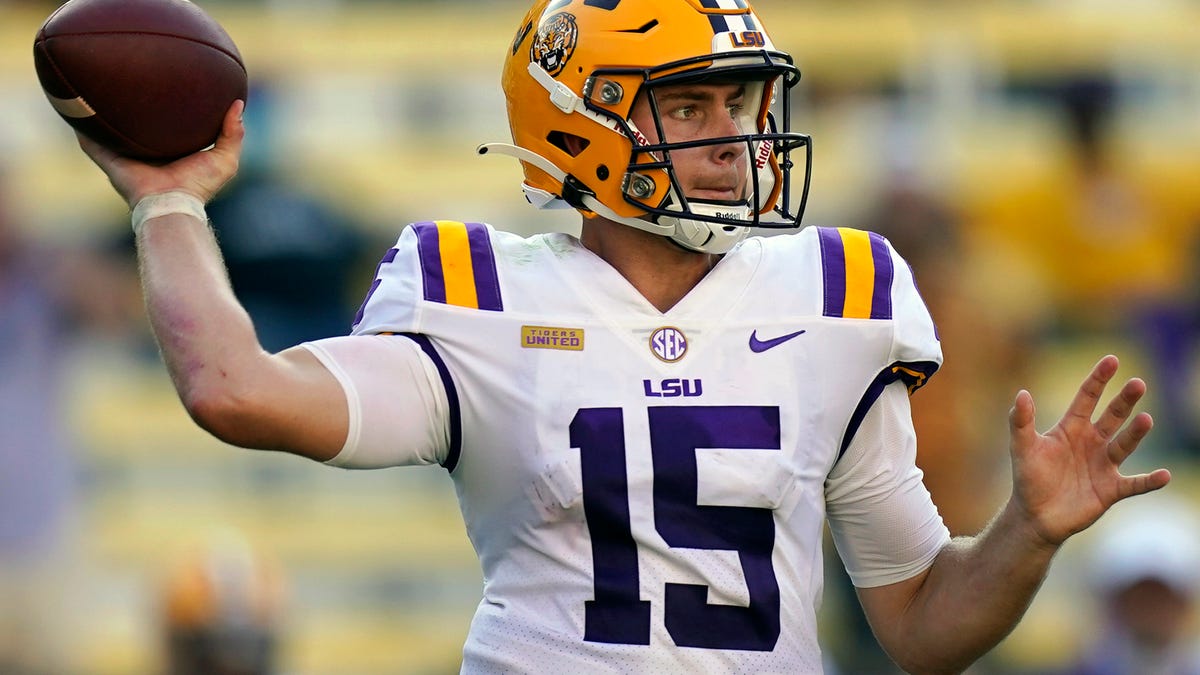Does Myles Brennan get to keep his NIL deals? We asked Leigh Steinberg

After five years, a championship ring, two major injuries, three starts, an entry into the transfer portal, a coaching change, and an exit from the transfer portal, sixth-year LSU quarterback Myles Brennan announced on Monday that he would be stepping away from football permanently.
Brennan, who took over for Joe Burrow after the Tigers’ dominant 2019 season and national championship, played in 18 games over a five-year career with the Tigers, totaling 1,712 yards and 13 touchdowns, but an abdominal injury three games into 2020 and a broken arm before 2021 all but tanked his career chances as Burrow’s successor. Convinced to come back from an attempt at the transfer portal by new head coach Brian Kelly, he was then replaced as the 2022 starter by an Arizona State transfer portal pickup, and is out of the game once and for all this time.
But before most of that happened, Brennan signed several NIL deals in the NIL rush of 2021, with companies including Raising Canes, Smoothie King, GameCoin, and a local Ford dealership, back when he was expected to be the Tigers’ answer to a 5-5 season and the loss of a Heisman QB.
He hasn’t actually played a game since signing those deals. He won’t ever play again in the Tigers uniform. But in the total mess that has come to define the NIL landscape, he actually may be able to keep these deals despite no longer being on the football team.
G/O Media may get a commission

CBD for active lifestyles
In both topical and capsule form, Elixinol CBD line is THC-free CBD that helps your muscles recover.
The NCAA has made it explicitly clear that NIL deals cannot be strictly performance-based. Essentially, if Brennan were to be injured in the first game of the season and forced to sit out for the rest of the year again, his sponsors would still be legally obligated to hold up their end of the deal.
But quitting the sport is a whole different ball game, and is a situation that may or may not be covered in the rushed-off contracts of the NIL craze after its legalization in July 2021, which have already proved to have a number of legally questionable holes in them throughout the first year of student-athlete sponsorship.
“It’s all contingent on the wording, There are escape clauses in many of the contracts where the endorser can walk away from the commitment based on certain behavior by the player,” super agent Leigh Steinberg told Deadspin. “In some cases, the contracts are not specific on whether or not the athlete has to be an active player.”
Brennan has presented the NCAA with yet another predicament in a NIL landscape already filled with a lot more questions than there are answers, and the way that this plays out could significantly affect NIL contracts going forward.
“There are clauses in the contract that have to do with public behavior,” continued Steinberg, who currently represents Patrick Mahomes. “The reason you have an endorsement is that the company is looking for the transference of the popularity of the player. There are all kinds of clauses where the company can escape based on behavior. Is the admission of mental health issues something that damages the athlete’s image? For Simone Biles and Naomi Osaka, I could argue that made their brand stronger.”
If his existing contracts overlooked the presence of a “quitting clause” and he does choose to honor them in the year going forward, all future NIL contracts will be sure to very explicitly prevent another situation like this from happening.
While this isn’t necessarily a problem in and of itself, the mental health question is unavoidable in the current climate that the sports world finds itself in. We’ve seen high-profile athletes including Ben Simmons, Simone Biles, Calvin Ridley, and Naomi Osaka stepping away from their sports for non-physical reasons that are still health-related, and NIL contracts would theoretically have to allow for that in situations like these.
But do they? It wouldn’t be shocking if NIL contracts failed to account for the mental health of an athlete — that’s essentially what revenue college sports have been doing for the past 40 years. And given the amount of money flying around when NIL deals first came into being, it’s hard to imagine that anything but a return on investment was on corporate sponsors’ minds.
For all the latest Sports News Click Here

